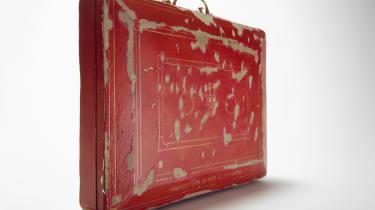Chancellor Rishi Sunak has announced Fuel Duty is to remain frozen at 57.95p per litre
Fuel Duty is to remain frozen again this year, the Chancellor of the Exchequer has announced.
Delivering his first Budget in the House of Commons, Rishi Sunak said the tax on petrol and diesel – which is paid on top of VAT – will remain frozen at 57.95p per litre.
Company car tax guide 2019/2020: everything you need to know
Fuel Duty has been frozen since 2009, and brings in approximately £28 billion a year for the Treasury. Although Sunak admitted he had “heard representations” suggesting duty should increase, he decided to keep it frozen for 2020 as “many people still rely on their cars”.
Concerns had previously been raised over what will happen to this revenue as electric cars replace models with internal combustion engines and sales of petrol and diesel vehicles begin to fall. Combined with the loss of other income from motorists, there could end up being a £40 billion black hole in the Government’s finances.
A formal inquiry into the matter is due to take place this year. The Transport Select Committee suggested in 2019 that Fuel Duty and Vehicle Excise Duty could be replaced with a pay-per-mile road pricing system, with tolls, GPS data loggers, ANPR (automatic number plate recognition) cameras, congestion charges, ultra-low emission zones and workplace parking levies all potentially playing a role.
But while fuel duty has been frozen once more, fuel price campaigners claim prices at the pumps should come down by 16 pence per litre to reflect falling global oil prices – a shift that has yet to occur.
Is the freeze in Fuel Duty a good thing? Let us know your thoughts in the comments below…
Source: Read Full Article



 Company car tax guide 2019/2020: everything you need to know
Company car tax guide 2019/2020: everything you need to know